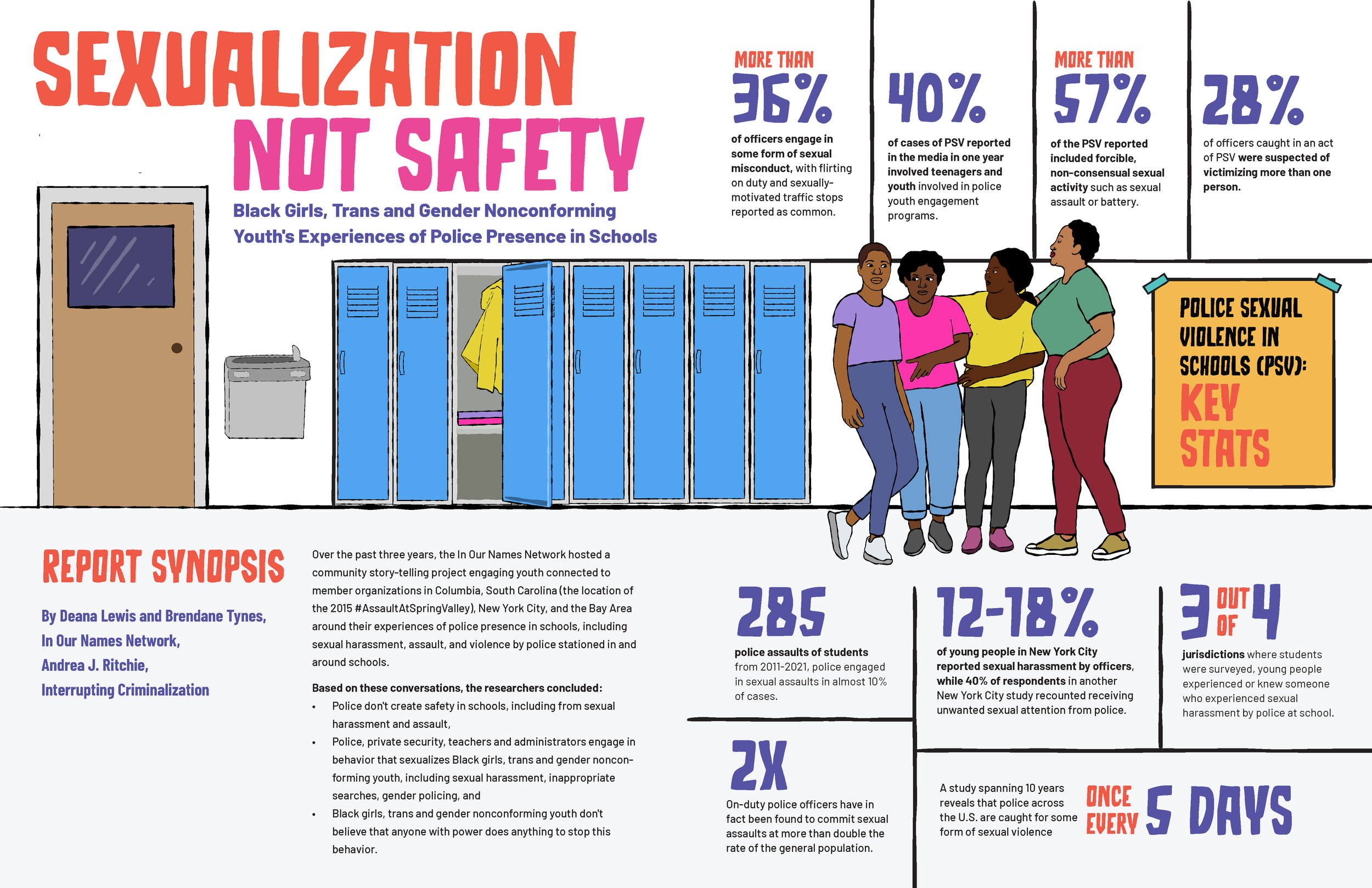Sexualization Not Safety: Black Girls, Trans, and Gender Nonconforming Youth’s Experiences of Police Presence in Schools: Report Synopsis
By Deana Lewis, Andrea J. Ritchie & Brendane Tynes
Over the past three years the In Our Names Network hosted a community story-telling project engaging youth connected to member organizations in Columbia, South Carolina (the location of the 2015 #AssaultAtSpringValley), New York City, and the Bay Area around their experiences of police presence in schools, including sexual harassment, assault, and violence by police stationed in and around schools.
Young people learned the basics of research design, honed research questions and methods, explored healing justice modalities and practices to support them and the people they interviewed as they explored potentially traumatic content, and designed a survey to collect more information about police sexual violence from their peers.
Early on, the pandemic pushed the project online, where researchers struggled with the pressures of increased responsibilities to support their families and zoom school fatigue while working to re-envision the project design to meet new conditions and capacities. Recognizing that conducting surveys online or on Zoom rather than in person would not offer the necessary privacy and one-on-one support, particularly as participants would largely be engaging the project from home, with parents, siblings and other family members nearby, researchers transformed the survey into an interview protocol which they piloted on each other, and developed focus group questions they piloted during two sessions held at EveryBlackGirls' annual conference in March 2023.
Based on these conversations, the researchers concluded:
Police don't create safety in schools, including from sexual harassment and assault
Police, private security, teachers and administrators engage in behavior that sexualizes Black girls, trans and gender nonconforming youth, including sexual harassment, inappropriate searches, gender policing, and
Black girls, trans and gender nonconforming youth don't believe that anyone with power does anything to stop this behavior
While researchers were not able to realize the project's original scope, sample size, and methodology, the project yielded valuable outcomes, including findings that can support campaigns for #PoliceFreeSchools, as well as research questions, sample surveys, interview, and focus group questions which can be used and adapted for future research, and lessons learned with respect to methodology and the constraints of research during a pandemic and recommendations for action and future research.
Be sure to also check out the full report by Interrupting Criminalization and In Our Own Names Network, Sexualization Not Safety: Black Girls, Trans, and Gender Nonconforming Youth’s Experiences of Police Presence in Schools.
